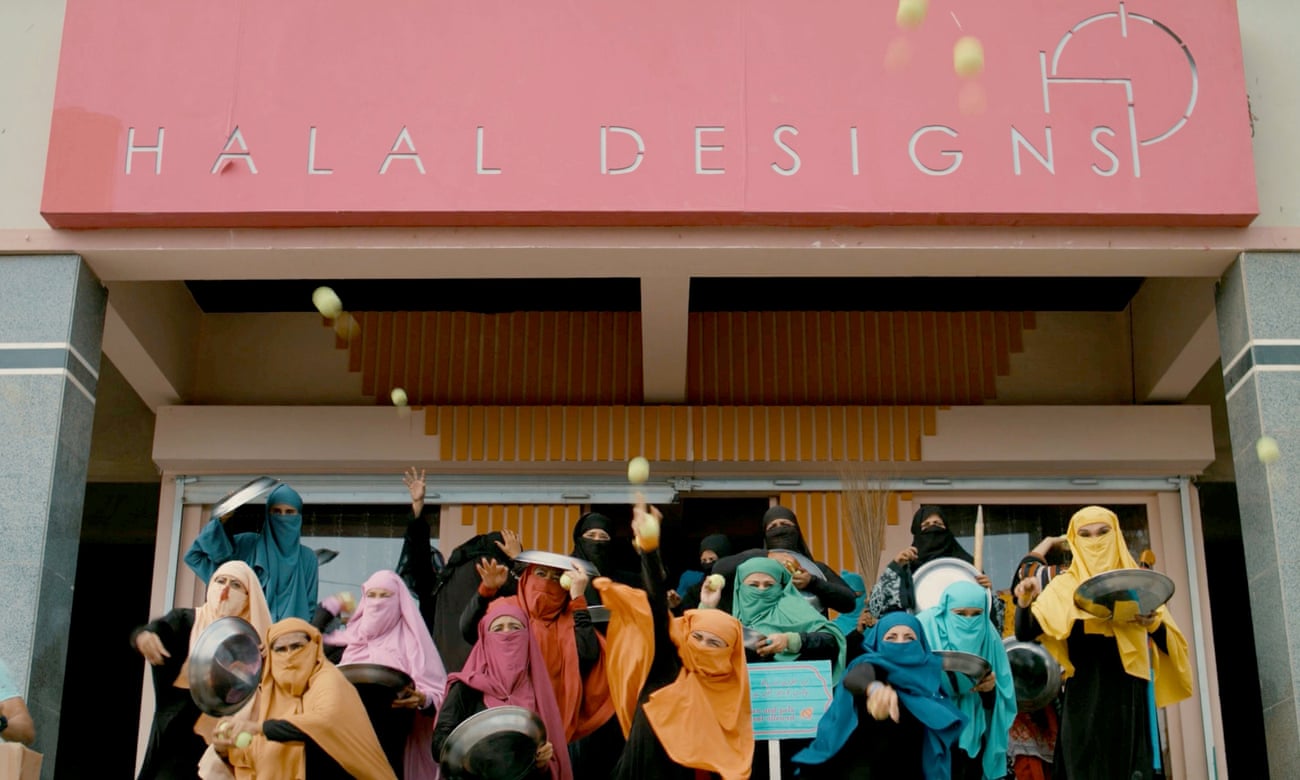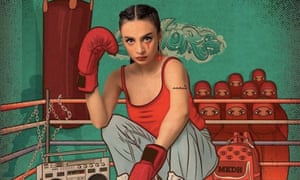By Alia Waheed
Aburqa-clad boxer, a high-society wedding planner and an ex-convict may sound more like the wish list for the next series of Big Brother, but they are just some of the characters in a groundbreaking new Pakistani drama show.
Dubbed “Lock, Stock and Four Smoking Burqas”, the series, called Churails, is the first made in Pakistan to feature a lesbian relationship. It was written and directed by British Pakistani film-maker Asim Abbasi, and tells the story of four women who start a detective agency to catch out cheating husbands, behind the facade of a burqa boutique.
“Churails is a story about women on the fringes of society,” said Abbasi. “In Pakistan, being a woman is the equivalent of being a sexual or ethnic minority because of the power dynamics of patriarchy. The series is very culturally specific, but also very universal.”
However, the series, which starts this week is more than just Desperate Housewives in hijabs. The smoking and swearing of the main characters has proved controversial, as has the tackling of issues such as child abuse and domestic violence, as well as same-sex relationships, which are illegal in Pakistan.
The title of the show literally translates to mean witches, but is more commonly used as an insult for rebellious women
“Because we are showing such a diverse range of women, it was important to show the entire spectrum of sexuality. It would have been wrong if they were all straight because not all women in Pakistan are straight,” said Abbasi, who is based in Leeds.
There is also a transgender character. “The reason the women open the detective agency is to level the playing field for everyone who identifies as a woman, so a transgender character who identifies as a woman should be included.”
He added: “The fact that she’s transgender is not addressed on the show and that is deliberate. It’s not that I was overlooking her identity or ashamed of it. It was to show the women coming to the agency were all equal.” The title of the show literally translates to mean witches, but is more commonly used as an insult for rebellious women. “The associations of women who don’t conform with witchcraft is a global phenomenon, but in Pakistan specifically, any woman who is sexually and emotionally liberated, who has the ability to be aggressive when threatened is called a churail. We are taking it as a badge of honour.”
Abbasi, who was born in Pakistan and moved to the UK as a teenager, was approached by Indian streaming service Zee5 to make the series, following the success of his debut film, Cake. “When people say this is not representative of our culture, what they mean is they don’t want to acknowledge these women exist in our society. What people think is vulgar today will not be considered vulgar in 10 years’ time. If we are going to change things, we as film-makers have to push boundaries.”
With TV dramas in Pakistan traditionally female-oriented, they tend to focus on domestic issues such as cheating husbands and hard-to-please in-laws. However, with Churails, Abbasi hopes to capture not only the young generation in Pakistan who are more influenced by Breaking Bad than Bollywood, but also global audiences who have more exposure to foreign TV shows thanks to streaming services.
You could say that Churails should have been made by a woman, but those opportunities aren’t there for women in Pakistan yet. I want to be an ally so their stories can be told
Asim Abassi
Actress Mehar Bano, 26, who plays a boxer, Zubaida, said: “The fact that we have moved on from pandering to a national audience and are now targeting a global market is a feat in itself. To initiate this with a show about women taking charge of their own lives, claiming their space and dismantling the patriarchal structures is outrageous and groundbreaking, especially for a country like Pakistan where female characters on local TV reinforce misogynist values.”
The launch of the series comes at a time when the representation of Asian women on British TV has been in the spotlight in shows such as the BBC’s A Suitable Boy, and Indian Matchmaking on Netflix, but for many it has not been as progressive as it could be, with critics saying they were regurgitating the same arranged marriage narratives.
“While we aren’t where we should be in terms of diversity, we have to start somewhere and adaptations are culturally rich,” said Abbasi. “You could say that Churails should have been made by a woman, but those opportunities aren’t there for women in Pakistan yet so I want to be an ally so their stories can be told.”
So at a time of A Suitable Boy, could a series about a group of unsuitable girls be the one that brings radical change to Asian representation on TV? “I hope so,” he said.



No comments:
Post a Comment